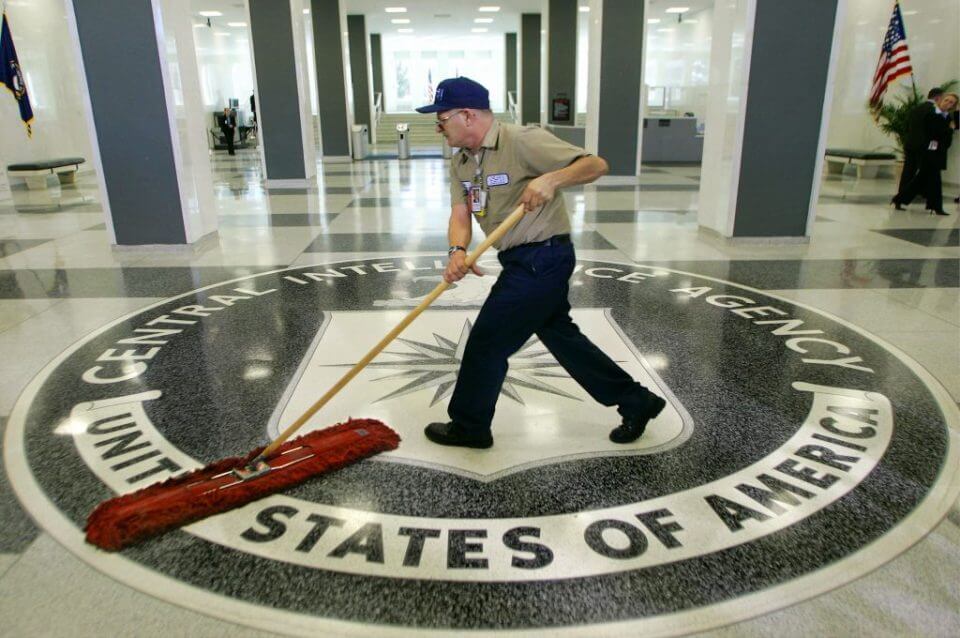
This is a president who openly and personally attacks the leaders and employees of the agencies in the Intelligence Community. In turn, some of them respond by attacking him, and on it goes.
Despite Henry Stimson’s naïve and dangerous attitude against intelligence gathering, reflected in his pre-World War II statement that, “gentlemen don’t read each other’s mail,” intelligence gathering always has been an accepted and vital component of our nation’s conduct of military and foreign affairs. This was recognized clearly by George Washington, who during his service as Commander in Chief of the Colonial forces during our War for Independence, relied often upon secret writings secured by a handful of brave colonial spies in his decision-making. Washington also punished severely those who betrayed that trust.
Four factors more than any other reside at the heart of a country’s successful foreign intelligence apparatus: cunning, training, patience and trust. These are the factors on which a credible intelligence product is built. America’s top policy makers, including ultimately the president himself, rely on these in making choices affecting the lives of the country’s men and women and perhaps the nation’s very survival.
The contemporary world in which massive amounts of data are gathered continually from technology, including from insect-sized drones to phenomenally-sophisticated satellites circling the planet, can go only so far in equipping those decision-makers with credible information on which to assess intentions of their foreign counterparts. Technology provides facts; the other half of the equation—intentions—ultimately comes from human intelligence in both collection and analysis.
Yet, whatever the source of the information offered to our commander-in-chief, the value of that product depends on the perspective not so much of the presenters, but on the consumer—the president himself. This has not always been a smooth process. Disputes or disagreements between these two entities—the Intelligence Community that gathers, analyzes, prepares and presents the intelligence to the president, and the president—have been not uncommon since World War II. However, such arguments were usually handled quietly, behind closed doors and not in the public domain.
This unwritten agreement that internal disputes concerning intelligence analysis were best handled within the confidential confines of the executive branch (and, to an extent since the late 1970s, also with the House and Senate intelligence committees), was based on the professional and accurate understanding that public disputes between our intelligence agencies and our policy makers – especially the president himself – offered to our adversaries a perhaps invaluable tool with which to “play” or manage their respective decisions and intelligence operations vis-a-vis the United States.
If, for example, a foreign, adversarial intelligence service sees that our top decision-makers and even the president himself have little faith in the intelligence being provided and our leader publicly downplays or rejects outright such information and the process that produced it, then our enemy can (and would) use that knowledge to craft their moves accordingly.
Such public airing of intra-executive branch disputes over the very efficacy of our own intelligence agencies and their work product reveals important fissures to our adversaries, undercuts our own sources and methods, and places our decision-makers at a serious disadvantage.
Unfortunately, the current atmosphere in our nation’s capital, in which political and policy-making discourse is conducted within the Congress, between the Congress and the President, within the Executive Branch, and between government and the media – an environment poisonous to civil discourse and immune to professional disagreement – has infected the Intelligence Community. A president-elect and then a president openly and personally attacks and belittles the leaders and employees of the agencies comprising the Intelligence Community. In turn, some of them respond by attacking him, and on it goes. Some former heads of the CIA have been launching personal attacks.
This tawdry process accomplishes nothing positive for the presidency, the Intelligence Community, or the country; and in fact undercuts the entire national security decision-making process and buttresses and emboldens one or both of our primary world adversaries (Russia and China) by implied comparison. It is historically unprecedented. And, despite occasional superficial efforts to smooth things over (such as President Trump’s post-inaugural visit to CIA headquarters) the damage already done is likely not short-term.
Certainly questions need to be asked, and real answers need to be provided to fact-finders on Capitol Hill, primarily to members of the intelligence committees on each side of the Rotunda. But such hearings will only exacerbate the problems already manifest, if they are conducted in the highly-charged, open, politically-based environment that has characterized the process thus far.
It is certainly true, as several members in both political parties have stated repeatedly, that “the public has a right to know” if the Kremlin deliberately and actually interfered in our electoral process, or if one or more of our foreign or domestic intelligence agencies was duped by a “fake” dossier possibly contrived or furthered deliberately by persons within our own government. The public also has a right to know if the billions of their tax dollars devoted to foreign intelligence activities are being spent wisely or are being squandered on false leads or political agendas here at home. And, the citizenry also has a right to be confident that the process within the executive branch according to which foreign intelligence is being produced and considered, is wise and professional.
The process by which answers to such vital questions are posed is itself two-pronged. First, hearings must be held confidentially to determine the facts, in such manner that further damage to the “sources and methods” on which intelligence product is based is not done. This fact-finding process cannot be accomplished properly in the white heat of current political discourse. Then, and only then, can decisions going forward be made by elected representatives in the Congress to right the intelligence ship.
Ultimately, however, there is only so much such a process can do. Without a group of men and women at the helms of our intelligence agencies who understand the complex and historically-sound nature of the intelligence business, and who are girded to do battle to preserve that environment against strong political forces seeking to further politicize the process, we are doomed to witness further erosion of what has been and should be one of the world’s elite intelligence services. But, the same understanding must necessarily be held and exhibited by those at the other end of Pennsylvania Avenue.
Bob Barr served in the United States House of Representatives from 1995 to 2003, representing Georgia’s 7th Congressional District. Mr. Barr also served for eight years in the CIA during the 1970s.











One thought on “Rep. Barr: Intelligence in the Age of Trump”